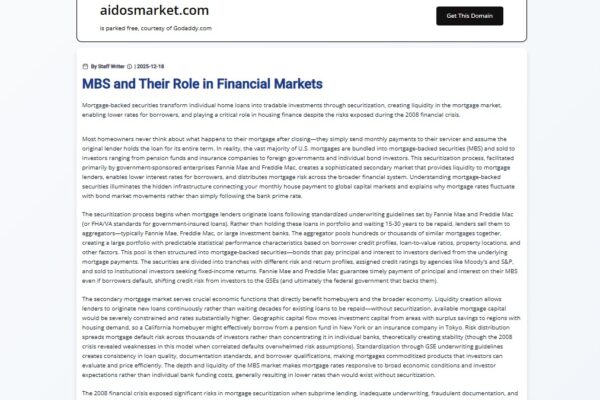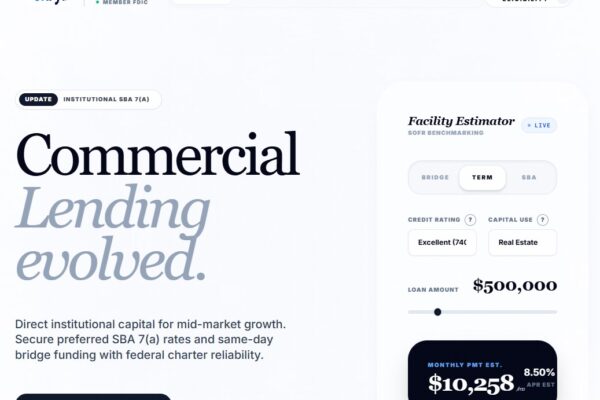TrezorGroup.com Scam Review -A Deceptive Trader
The Pitch: What TrezorGroup Claims
From first glance, TrezorGroup markets itself like many online trading / investment firms. They present slick landing pages, promises of growth, “advisor support,” and a mix of crypto, trading, or derivative services. The site name evokes “Trezor,” which is already a well-known name in crypto hardware wallets. That resemblance can create subconscious trust in people.
They often advertise “trusted group,” account tiers, leveraged trading, and ability to generate high returns. They may show testimonials, charts, or marketing snapshots hinting at success stories.
All of that is classic in scam or borderline operations: leverage a familiar or trusted name, show success, promise support, and lure people in with optimism.
Red Flags: What Doesn’t Add Up
1. Regulatory Warnings & Investor Alerts
One of the strongest indicators that something is wrong is what regulators themselves say:
-
The Alberta Securities Commission in Canada has placed Trezor Group on its Investment Caution List. It explicitly states Trezor Group is not registered to trade or advise in Alberta. (Date added: May 17, 2024)
-
The Canadian collective regulator also includes Trezor Group in its Investor Alerts, warning people about engaging with it.
-
In Saskatchewan, the provincial securities authority (FCAA) released an “Investor Alert: Trezor Group is not Registered.” They caution that Trezor Group makes offers in that region (crypto, stock, derivatives) but is not legally registered there.
When multiple provincial or national regulators warn a firm is unregistered, that is a very serious red flag. It means the firm is operating outside legal oversight in those jurisdictions, exposing investors to high risk and minimal recourse.
2. Very Low Trust Scores from Web Safety / Scam Scanners
Site reputation engines and domain checks also raise alarms:
-
ScamAdviser gives trezorgroup.com a very low trust score. Its algorithm flags hidden ownership, low domain age, association with registrars used often by fraudulent sites, low popularity, and negative reviews.
-
Among the negative highlights are that the domain is young, the registrar has a high share of spam/fraud sites, and the site has negative reviews. Even though it holds a valid SSL certificate, that alone is not sufficient.
-
Broker safety assessment sites (e.g. BrokerChooser) conclude that Trezor Group is not a safe and trusted choice.
These are not definitive proof of a scam—but when technical and reputation tools consistently register red alerts, you must take them seriously.
3. Allegations from Users & Discussion Forums
Beyond technical tools, real user stories consistently mirror classic scam patterns:
-
On Reddit, one user described being contacted by “advisors” from Trezor Group, depositing money, seeing apparent profit, but then being blocked from withdrawing. They said one advisor even yelled at them when they asked to withdraw, saying “you can’t invest if you are taking money out.”
-
That user also said their balance was increased dramatically (from $7,000 to $22,000, then to $157,000) in short order—before being told to pay fees, transfer funds, or take additional steps to access money.
-
The same user noted that they were told they needed to deposit more money to trigger a transfer from a “defi account” into crypto.com, etc. The user found no such affiliation existed.
-
Other users say they received many calls / messages urging deposits, often with coercive or manipulative pressure.
These reports are strikingly consistent with how many broker / crypto scams operate: initial small trust, rising promises, then barriers when money is to be taken out.
4. Use of Name That Suggests False Affiliation
“TrezorGroup” is likely designed to evoke the name “Trezor,” a known hardware wallet brand. That kind of name mimicry is common in scams: using a name that sounds credible or familiar to piggyback on trust. Indeed, users and even Trezor’s own community have stated that this “Trezor Group” has no affiliation with the genuine Trezor wallet brand. Reddit
If a platform uses a name that humans can easily confuse with a legitimate brand, that’s a tactic to mislead.
5. Fabricated Success Stories & False Testimonials
-
Medium articles reviewing TrezorGroup claim the site uses false testimonials and fabricated “customer success stories” to create the illusion of trustworthiness.
-
Some of the displayed gains or “account growth” stats are extremely aggressive—skyrocketing in short periods—raising serious plausibility questions.
When success stories are not tied to verifiable accounts or independent proof, they are suspect—especially in high-risk domains.
6. Lack of Regulatory / Company Detail Transparency
From what is publicly visible:
-
The site does not clearly show which financial authority regulates it, or in which jurisdiction it’s legally incorporated.
-
There is no credible listing of leadership, executive bios, or transparent company registration.
-
Withdrawal policies, risk disclosures, or audit reports are vague or missing in many public descriptions.
-
Because of hidden domain ownership via privacy services, it is difficult to tie the site to a real person or entity.
Legitimate brokers and investment companies typically make these details readily available and verifiable; their absence is a liability.
The Scam Playbook: How TrezorGroup Likely Operates
Based on patterns from user reports and what’s known of similar schemes, here’s a likely operational cycle:
-
Lead generation & contact: Users are contacted via ads, social media, or unsolicited outreach. Advisors present the platform as an opportunity with high returns.
-
Initial deposit & small “wins”: The user is encouraged to deposit a modest amount. The platform may simulate gains or show small profits to build trust.
-
Pressure to increase investment: After initial activity, users are urged to deposit more, upgrade to premium tiers, or invest in volatile assets.
-
Withdrawal obstacles: When the user requests to withdraw, they are asked for “verification fees,” taxes, or additional payments. The platform creates delays, excuses, or technical barriers.
-
Escalating demands: More deposits are requested to “unlock” funds, or to transfer through specific wallets or services.
-
Communication breakdown: Support becomes unresponsive or stops altogether once large withdrawal is requested.
-
Vanishing or domain changes: Eventually, the site may go offline, change its domain name, or rebrand, leaving affected users with empty accounts.
This sequence is well documented across many scam operations, and matches many of the user reports around TrezorGroup.
Why These Problems Matter (Risk to Users)
Here’s what’s at risk if someone deals with TrezorGroup:
-
Loss of funds — your deposit, plus any “gains,” may never be withdrawable.
-
Identity exposure — you may share personal data (KYC, bank account, IDs) which can be misused.
-
Fraudulent pressure — you may be manipulated into depositing more or trusting fake instructions.
-
No recourse — because the firm is not registered in many jurisdictions, there is no regulatory body to complain to or enforce rules.
-
Reputation damage — associating with a scam platform can have personal or financial consequences beyond just money lost.
Comparative Analysis: Legit Broker vs. TrezorGroup
Here’s a note on what you should see in a legitimate, regulated broker — and how TrezorGroup misses those marks:
| Feature | What a Legit Broker Shows | What TrezorGroup Lacks or Distorts |
|---|---|---|
| Registration & Licenses | Clearly listed regulator, license number, details | Warnings say it is unregistered, no credible license shown |
| Transparent Company Info | Public legal entity, address, executive biographies | Ownership hidden, no clear entity |
| Withdrawal Policies & Terms | Clear, fixed terms and fees, verifiable user experience | Vaguely stated, users report withdrawal blocking |
| Audit / Performance Proof | Verified metrics, third-party audit | None visible, success stories likely fabricated |
| Support & Compliance | Real compliance / legal team, consistent support | Support seems good while recruiting, not when withdrawing |
Because TrezorGroup fails so many of these benchmarks, the red flags are not minor — they are structural.
Final Verdict: Scam, High Risk, or Something Else?
While I cannot assert with absolute legal certainty that every aspect of TrezorGroup is conclusively fraudulent, the balance of evidence is overwhelming. The convergence of regulatory warnings, user complaints, low trust ratings, name confusion, and classic scam behavior makes the conclusion strong:
TrezorGroup.com is a high-risk, likely scam or predatory platform, not a legitimate broker or investment firm.
For anyone considering using it, the chance of harm significantly outweighs any potential upside.
If You’re Evaluating Any Platform (Including TrezorGroup)
Here is a mental checklist to use (even though I’m not giving explicit recovery steps):
-
Is the firm registered and licensed in your jurisdiction?
-
Can you independently verify the license via the regulator’s public registry?
-
Does the site clearly publish company details, leadership information, and physical address?
-
Do “success stories” reference real, verifiable users?
-
Are withdrawal terms clear and fixed—not shifting after you deposit?
-
Do web safety / domain trust tools flag the site?
-
Has any financial authority issued warnings about the platform?
Whenever multiple “no” answers appear, it’s a major red light.
Closing Thoughts
Scams in online trading and crypto are evolving, and platforms like TrezorGroup show how easily confidence can be exploited. The use of a familiar name, polished marketing, staged gains, and withdrawal friction is a well-worn formula — but it still works on many people.
When risk is as high as this, the smart move is caution and skepticism. Before you consider any investment, especially in platforms with red flags, demand clarity, verify records, and avoid putting in funds you cannot afford to lose.
TrezorGroup is not just ‘risky’ — it checks many boxes of what real fraud investigations uncover. For now, the safest assumption is that it is an operation designed to absorb money, not deliver on promises.
Report TrezorGroup.com Scam and Recover Your Funds
If you have lost money to TrezorGroup.com Scam, it’s important to take action immediately. Report the scam to Jayen-consulting.com, a trusted platform that assists victims in recovering their stolen funds. The sooner you act, the better your chances of reclaiming your money and holding these fraudsters accountable.
Scam brokers like TrezorGroup.com continue to target unsuspecting investors. Stay informed, avoid unregulated platforms, and report scams to protect yourself and others from financial fraud.
Stay smart. Stay safe.






